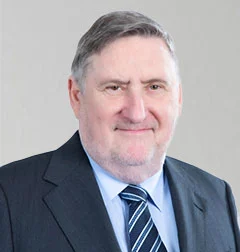
How can the health regulator better protect patients from sexual misconduct?
Published on February 20, 2023 by Bill Madden
This article was originally published in The Conversation.

This week’s ABC Four Corners investigation revealed the Australian Health Practitioner Regulation Agency (Ahpra), or tribunals determining such complaints, allowed a number of doctors sanctioned for sexual misconduct to resume practising.
The ABC suggests almost 500 practitioners from a range of health professions, many of whom are doctors, have come to Ahpra’s attention for “boundary violations” since 2010. Boundary violations is the generic term for health practitioner sexual behaviour problems, the most serious of which is sexual assault of a patient.
According to the ABC, about one-third of the 500 practitioners remain registered with Ahpra or have been returned to the register.
Health Minister Mark Butler has ordered a rapid review of whether recommendations from previous reviews have been properly implemented. He told the ABC:
If that framework is falling short of protecting patient safety, then Australians rightly expect governments at all levels to work to strengthen it.
So what is the framework? What reforms have been recommended previously? And what needs to happen now to protect patients?
Breaching doctors’ code of conduct
The Medical Board of Australia, which governs doctors, has a code of conduct. It tells doctors that good medical practice involves never using your professional position to establish or pursue a sexual, exploitative or other inappropriate relationship with anybody under your care. This includes those close to the patient, such as their carer, guardian, spouse or the parent of a child patient.
Even if a patient consents to sexual contact, the power imbalance between the patient and the health professional nevertheless means the sexual contact is probably inappropriate. More detail appears in guidelines specific to sexual boundaries between doctors and patients.
Similar ethical guidance appears in the United Kindom and New Zealand.
What happens if a clinician assaults a patient?
Mandatory reporting rules mean health professionals have an obligation to report sexual misconduct by their peers, generally to Ahpra. Failure to do so may itself be unsatisfactory professional conduct.
Of course, a patient may make a direct complaint of sexual misconduct to Ahpra or to local health-care complaints organisations.
Immediate action can be taken by Ahpra (or other bodies in New South Wales and Queensland) pending proceedings being brought against health practitioners in various tribunals across Australia.
Those proceedings will determine if a boundary violation occurred and provide for an appropriate response, which may prevent the health practitioner from practising or may impose lesser constraints, such as mentoring or education.
Patients may also report sexual assault (or other offences such as possession of child abuse materials) to the police, which may lead to criminal prosecution and possible imprisonment. Convicted health practitioners may then not be able to obtain clearance for working with children, making it very difficult if not impossible to continue work as a doctor or other health practitioner.
Patients suffering injury (usually mental harm) can seek compensation by suing the health practitioner and, in some cases, their hospital or clinic.
Patients rarely sue Ahpra for failing to take prompt and appropriate regulatory steps. There is perhaps only one reported case involving Ahpra, which settled before a hearing.
What’s going wrong?
Incidents of health professionals sexually assaulting patients are of course deeply concerning. But whether anything is “going wrong” with the current regulatory system may be debated.
Patients in different states have access to different information about health practitioners – this could be improved. Patients and doctors have also reportedly complained that the processes of Ahpra, the tribunals or the courts can take “too long”.
Whether permitting some health practitioners to return to practice after boundary violations is appropriate requires careful scrutiny of the history of the complaint.
And as mentioned in the ABC program, health practitioners, patients and Ahrpa could well benefit from more research about what is and is not working to protect patients.
How can we better protect patients?
Ahpra, which only come into existence in 2010, has taken steps to improve how it responds to boundary violation complaints.
In 2016, the Medical Board of Australia and Ahpra commissioned an independent review into the use of chaperones to protect patients. The aim of a chaperone is to have an independent person present to supervise a doctor. Unfortunately the review reported chaperones did not adequately protect patients:
Chaperone conditions are not wholly effective to prevent patients being exposed to harm and, in some cases, sexually assaulted. Their use is largely confined to private medical practice. The system relies on inadequately informed and trained chaperones, many in a conflicted situation by being employed by the practitioner they are to observe and report on.
Chaperones are still used today in some circumstances, but probably less often.
A National Health Practitioner Ombudsman has been established to investigate complaints and make recommendations to improve the regulation of Australia’s health practitioners. Its work is probably not well known, but it does publish its reports and submissions.
Ahpra has also recently invited feedback from health practitioners, employers and members of the public on the future uses of the data it collects and stores. It sought views on publishing additional information about health practitioners and their practice on the public register. The feedback process finished only recently, so we do not yet know what the outcome will be.
For boundary violation cases, there may be an argument for more transparency. This would include information about the constraints imposed on health practitioners remaining publicly visible on the Ahpra public register permanently, even if the practitioner’s period of suspension, supervision, or the like, eventually lapses.
Perhaps transparency of information is an area for attention more broadly. The ABC reported that only in NSW is information made publicly available when suspended health practitioners apply to return to practice. Arguably, this should be rolled out to the other Australian jurisdictions.
If patient protection cannot be confidently maintained, especially with “repeat offender” health practitioners, we may see calls for a “one strike and you are out” provision. This would mean health practitioners found to have serious or multiple boundary violations may never be permitted to return to practice.
This would be a serious step, but further research on the operation of the current system may assist in assessing the merit of that type of law reform.
POSTSCRIPT
Australia’s health practitioner regulator has outlined a blueprint to better protect patients from sexual misconduct in healthcare, as well as a range of broader reforms to keep patients safe. To improve it’s handling of sexual boundary matters, Ahpra and National Boards will:
- Commence a public review of the Criminal History registration standard which applies to all registered health practitioners. This review will include looking at how the standard is applied to sexual misconduct offences.
- Expand our support and information service for victims and witnesses of sexual misconduct, to support them through the regulatory and Tribunal process. The pilot we’ve trialled has been successful.
- Commission research on the outcomes of sexual misconduct matters, looking at whether patients are being protected and what might need to change.
Ahpra has said the following in relation to measures which may require National Law amendments:
- Ensure the needs of First Nations People are prioritised: Establish new shared governance arrangements with Aboriginal and Torres Strait Islander peak bodies via the National Health Leadership Forum to oversee implementation of the culturally safe notifications program and the broader health strategy towards eliminating racism from health care.
- Strengthen the hand of patients and the public: Increase the role of community members in decision making committees about practitioner misconduct.
- Greater tribunal transparency: Seek amendments to the National Law requiring tribunals to decide – in an open hearing – if practitioners who have had their registration cancelled can apply for re-registration.
- Improved standards for those harmed by practitioners: Introduce a Charter of Rights for those who have experienced professional misconduct by health practitioners. This could set out the principles to ensure victims and witnesses are acknowledged, respected and provided with necessary support and information through regulatory and tribunal processes and wider use of victim impact statements.
- More information on the national register: We are keen to publish more information on the national register about practitioners with a history of professional misconduct in sexual boundaries cases. Any change needs Ministerial support. We already publish links to published tribunal decisions and want to extend this.
[contentblock id=5 img=html.png]
